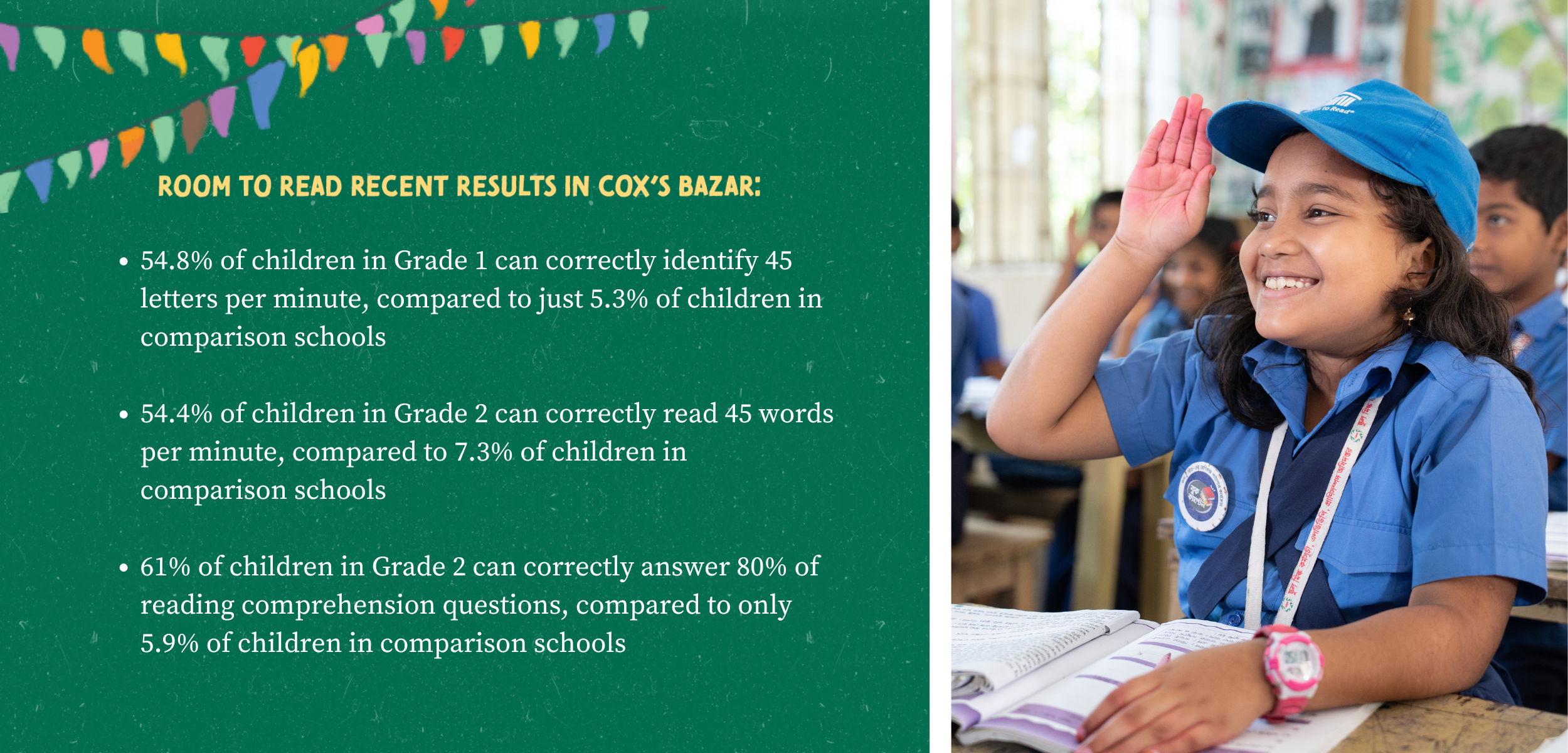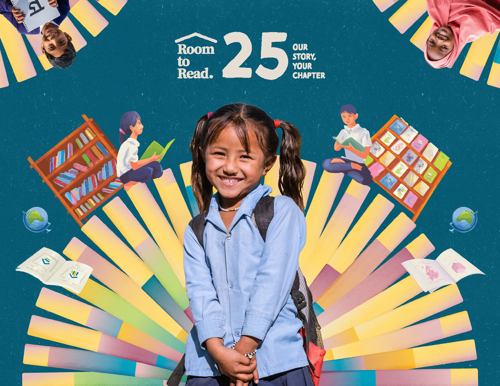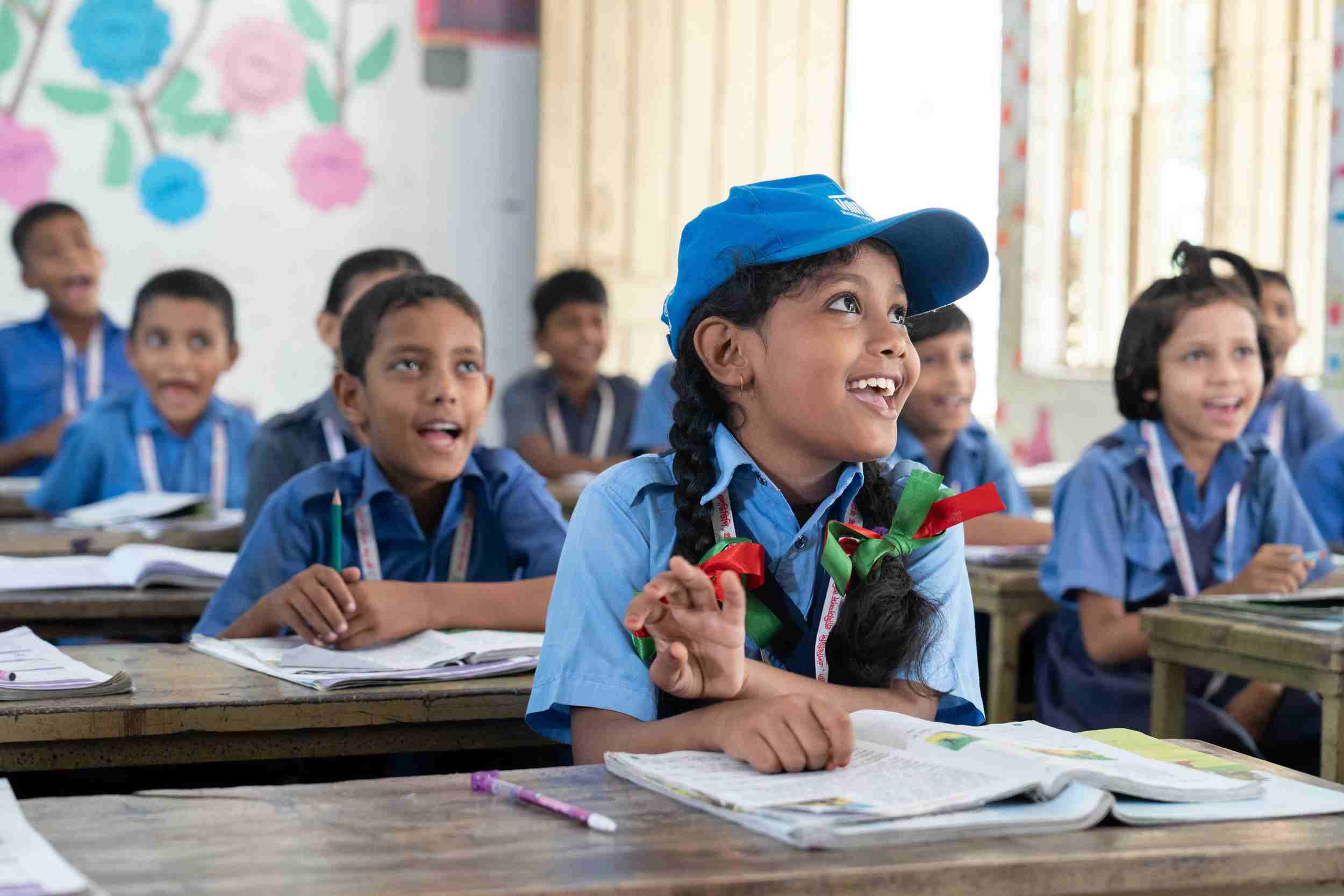If you’ve supported Room to Read at any point in the last 25 years, you’ve directly accelerated positive change — the kind of systemic change we are advancing in Bangladesh.
For children in Bangladesh, 2024 was a year marked by starts and stops. In July, political unrest forced schools to close. In August, severe monsoon conditions caused catastrophic flooding and landslides, disrupting education yet again.
We adapted to support at-home learning, as we have done so many times before. We mobilized our resources to distribute Room to Read’s proven curriculum and educational content: workbooks, notebooks and children’s literature. When schools reopened, we guided educators to address learning gaps. Our work does not stop in the face of chaos or uncertainty. Your support has allowed us to become increasingly flexible and adaptable, ensuring that we can take a contextualized approach.

This contextualized approach has made Room to Read a valuable partner of choice for the Bangladesh Directorate of Primary Education. Through this partnership, we published 10 new storybooks in 2024, on subjects like climate change, gender equality and the value of education. These books now fill the shelves of more than 65,500 government primary schools across the country.
Our Story, Your Chapter 2024 Impact Report
 We're 25 years into our story. We've proven that ending the global learning crisis is possible. And our story is far from over. This year, we're writing our next chapter, one focused on a new strategic vision for our future. Our new strategy is not time-bound. We're going bigger, bolder, longer term.
We're 25 years into our story. We've proven that ending the global learning crisis is possible. And our story is far from over. This year, we're writing our next chapter, one focused on a new strategic vision for our future. Our new strategy is not time-bound. We're going bigger, bolder, longer term.
With our partners, we also drafted an “Independent Readers Framework,” providing literacy guidelines to all government primary schools to ensure all children learn to read independently. Moreover, we advised on a new “Independent Reading Time,” a 50-minute weekly reading period for grades 3, 4 and 5, cementing a reading routine into the national academic schedule. Through this routine, children have the room they need to develop a true love of reading, laying the foundation for improved literacy outcomes.
And after successfully establishing 59 classroom libraries in 10 government schools in Dhaka and Rangpur, our classroom library model was adopted nationally, securing safe and accessible delivery structures for our literacy programming. Soon, all children in government primary schools will have access to colorful libraries filled with a wide variety of books, inviting them to get curious — and fall further in love with reading.





